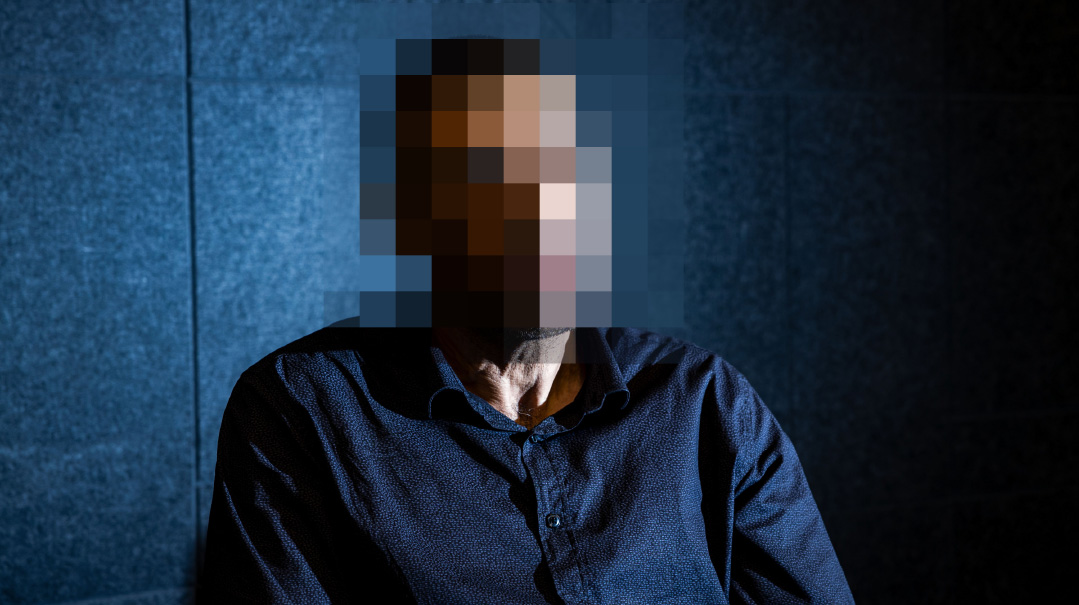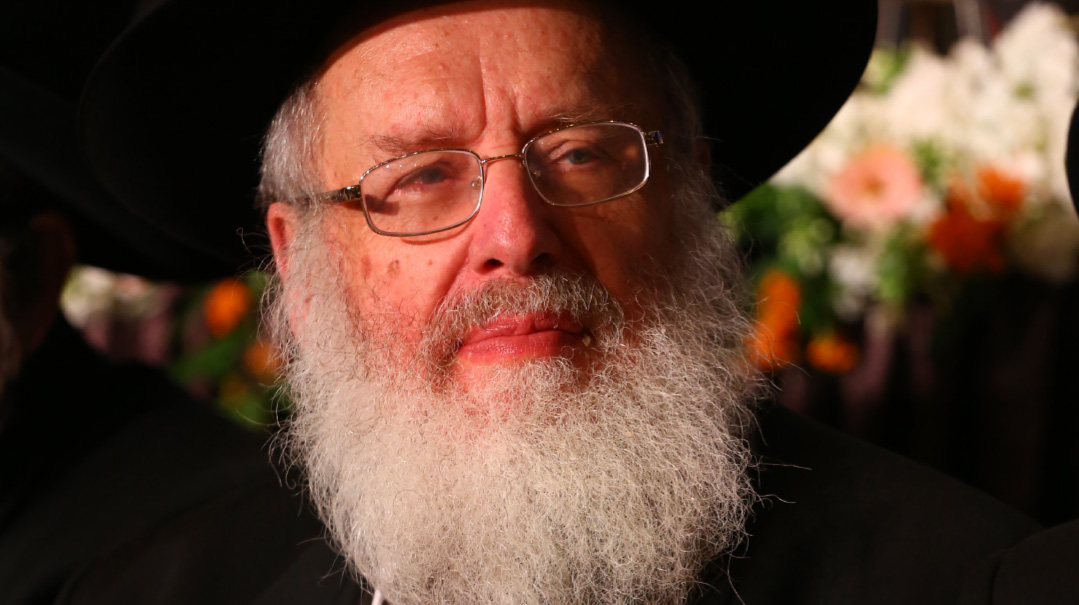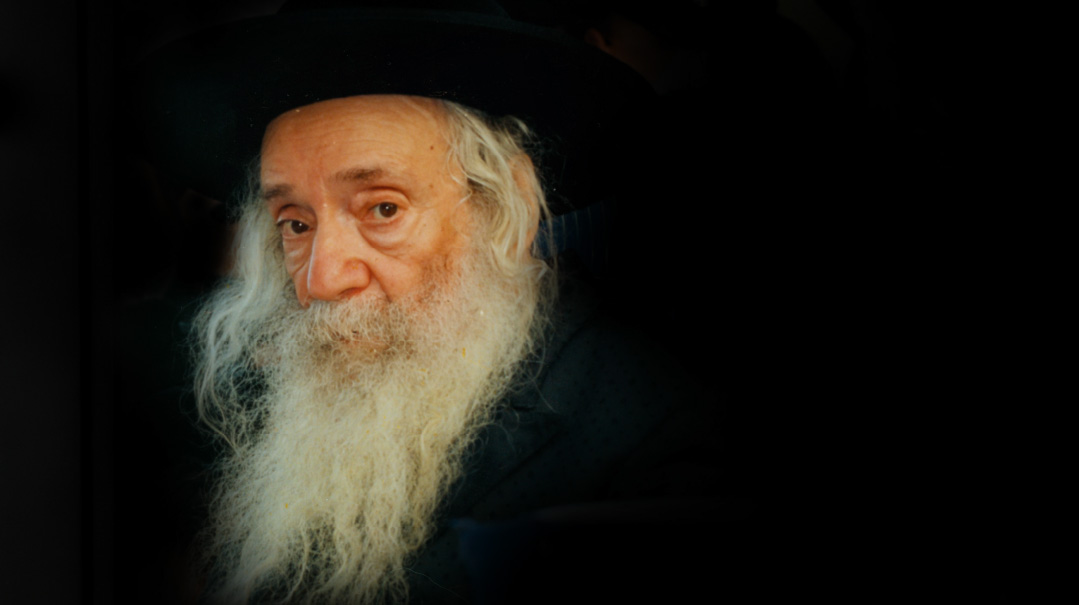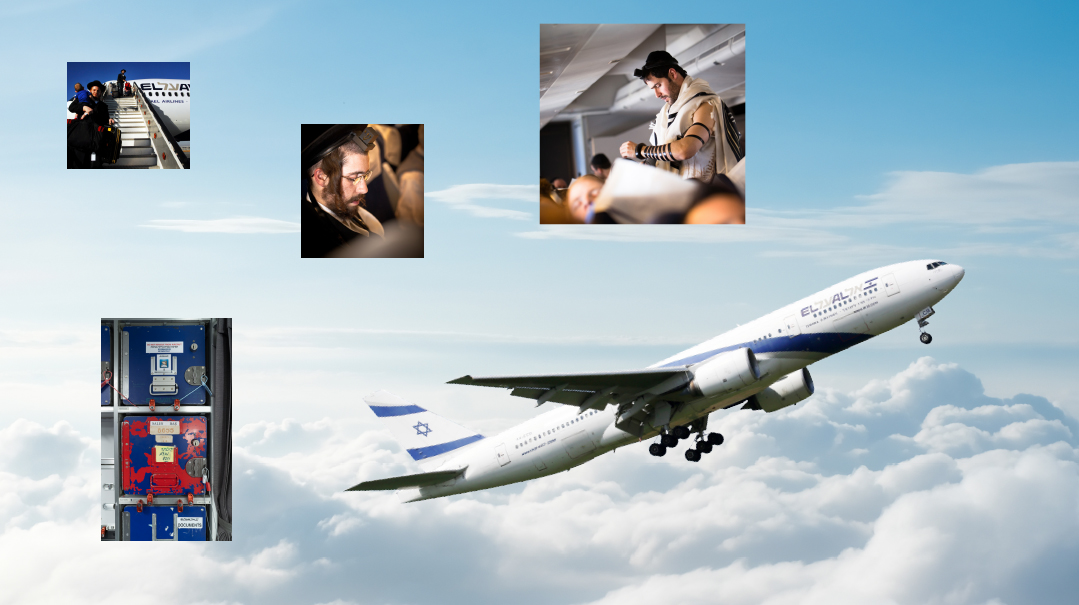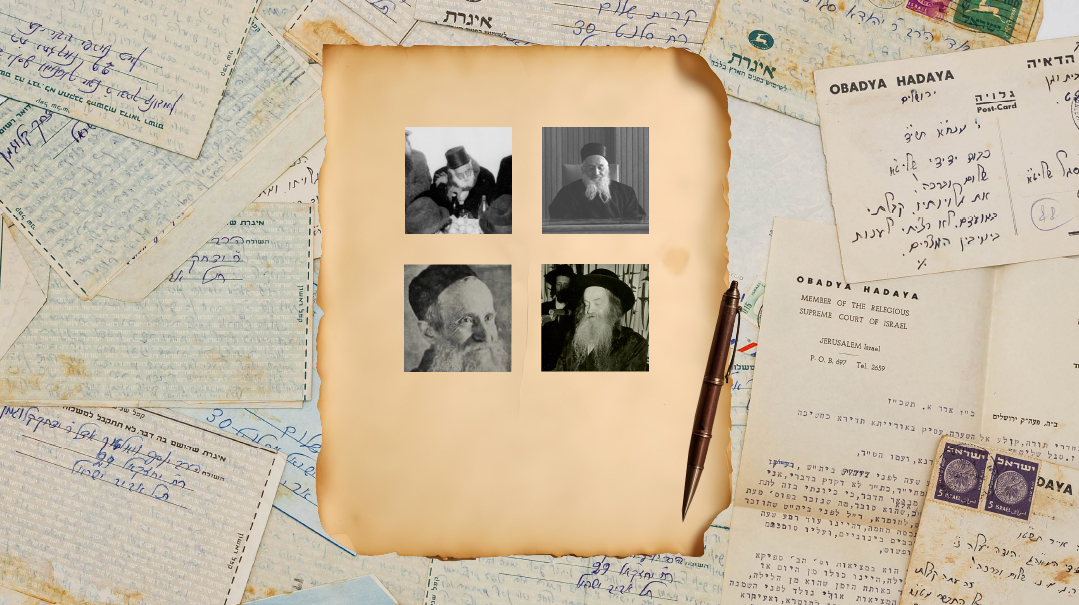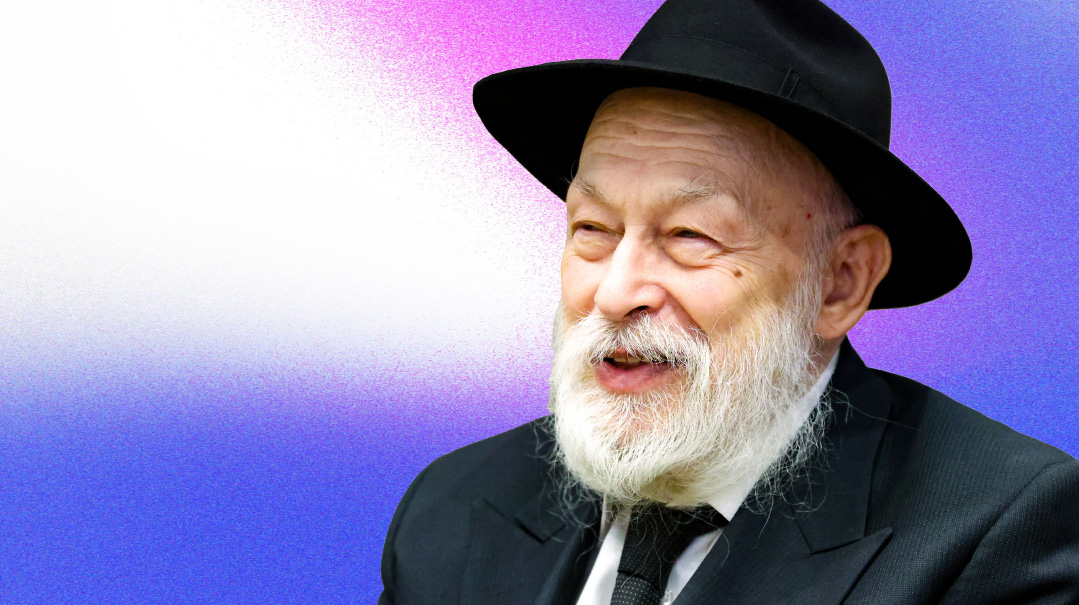Wings and Prayers

Rav Yaakov Hillel: The Jewish People’s age-old weapons of Torah and spiritual merit haven’t changed
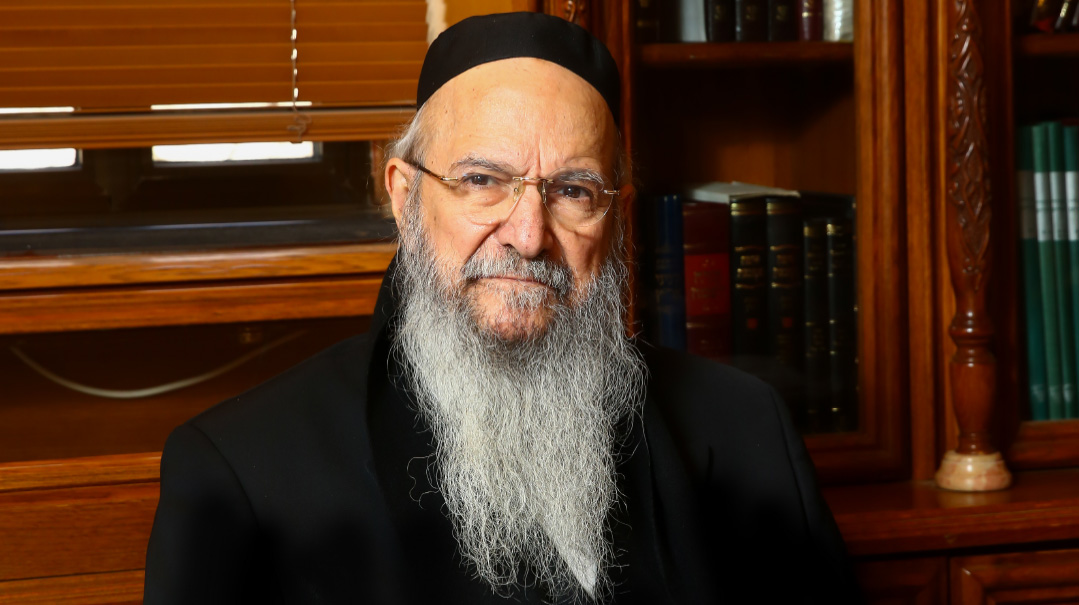
Despite the fact that the sirens were quiet across Yerushalayim when Mishpacha went to sit down with Rav Yaakov Hillel, Rosh Yeshivat Ahavat Shalom, war was in the air as the Jewish people worldwide waited for Hamas to release innocents held hostage in Gaza.
A descendant of Chacham Avraham Hillel, av beis din in Baghdad, Rav Hillel was born in India, and then moved to England, where he studied in Gateshead Yeshivah before moving on to Ponevezh, where he became a close talmid of Rav Shach.
At the beginning of the 1970s, Rav Hillel founded his yeshivah, Chevrat Ahavat Shalom in Geulah — named after the yeshivah of the 18th-century mekubal Rav Shalom Sharabi — where he’s taught many gedolim from both the Sephardi and Ashkenazi Torah worlds. The expansion of the Ahavat Shalom institutions has made Rav Hillel one of the preeminent Torah teachers globally, with yeshivos, a kollel network numbering thousands of avreichim, a beis din, a national kiruv organization, and schools under his leadership.
From the beginning of the war, Rav Hillel has spoken to different audiences, from yeshivos to schools overseas, and groups of evacuees from the Gaza area. In conversation with Mishpacha, he discussed the roots of the conflict with Yishmael, the ray of chesed that was apparent in the timing of the attack, acting to combat the spread of anti-Semitic hatred throughout the world, and what to share with children about these difficult times.
Above all, Rav Hillel reminded that amid the confusion of war, we shouldn’t lose sight of the centrality of Torah in protecting the Jewish People, whose miraculous survival is exemplified by the events of Chanukah.
“The attacks by Hamas are just one more stage in thousands of years of galut,” he says, “and only Torah can protect and save us.”
For two months now, the Jewish People have been under attack in a way that we’ve not seen for generations, both in Israel and around the world. How are we to understand the terrible events of Simchas Torah and the death struggle that we’re locked into with Hamas?
The only way to understand current events is through the perspective of Chazal, who tell us that there are four Exiles — Babylon, Persia, Greece, then the Romans. The Zohar adds a fifth, which is Yishmael before the coming of Mashiach, which will be a very difficult period. Rav Chaim Vital explains that Yishmael is more of a threat to the Jewish People because of his relative closeness to Am Yisrael through being the son of Avraham Avinu; and because he, like us, also has the merit of brit milah.
Chazal tell us that very name “Yishmael” foretells the future, which is that his descendants will oppress us and force us to cry out to Hashem. Which means to say that there is something unique about Yishmael: Unlike the previous exiles, in which generally speaking the persecution only came about when we refused to assimilate, when it comes to Yishmael, he wants to swallow us alive — assimilation isn’t an option. The Holocaust, in which the Nazis wanted to exterminate us, was the border between two eras — indicated by the fact that Hitler was urged by the Mufti of Jerusalem to complete his work. And as Rav Avigdor Miller explained, it was the result of hundreds of years of assimilation.
That is the context in which these horrific attacks happened: It’s the rise of Yishmael, as written hundreds of years ago by Rav Chaim Vital (Eitz HaDaat Tov, Tehillim 124, 1-2). His purpose in history is to bring Am Yisrael to teshuvah.
Beyond the general framework, what is the message behind the timing — that the worst slaughter of Jews since the Holocaust took place on Simchas Torah and Shabbos, one of the holiest days of the year?
First, we have to know that within the tragedy was a display of chesed — that Hashem delayed this terrible decree until the last possible minute.
The Zohar says that although the judgment of Rosh Hashanah is sealed finally on Hoshana Rabbah, the implementation only begins after Mussaf on Simchat Torah. It’s like a court that hands down the decision, but the bailiffs only arrive later. In that way, anything that happens until halfway through Simchat Torah was really decided the previous Rosh Hashanah.
In other words, what happened on Simchat Torah morning was a gezeirah decided a whole year before. So Hashem held off implementing it until the very last moment. The fact that the attack took place on Simchat Torah was significant: It was a display of chesed, to give us a chance to avert the decree by teshuvah before it was implemented.
When apportioning blame, it’s easy to revert to an attitude that the cause — and the need to do teshuvah — lies at the feet of those furthest from a Torah way of life.
Some people say that yes, the disasters happened because of the secular Israelis, the leftists who oppose religion and fight the Torah, oppose Torah study.
I don’t think that’s how we should look at it. I think that bnei Torah, religious Jews, have to take more responsibility than just saying it’s all because of the secular Jews. There are many opinions who hold that the general Israeli public have the status of tinok shenishba — that they’re brainwashed, as it were, by their secular education.
Rav Chaim Vital, in his introduction to his famous work Etz Chaim, which is a very deep kabbalistic work, writes that for all the evil decrees on Am Yisrael, for all the suffering of the Jewish People, the blame is on those who are great in Torah and don’t find time to learn nistar as well.
That’s not on our level, I’m not suggesting that. What I am suggesting is that we see that those who are on a higher level are more responsible. Our teshuvah could and should have prevented this.
If the main battle between Yisrael and Yishmael is in the spiritual realm, we know that we live in a world that demands action as well. How much effort is it proper to invest in lobbying American governmental officials, and working with media sources to ensure a less biased portrait of Israel in the news — is this our responsibility right now?
The answer is that whatever we can do to influence the media conversation to favor the Jewish nation in general is good, and people who have those skills and connections should use them to make the truth known. We don’t need the whole world joining Hamas, and the world has to see how evil and merciless these terrorists are. They kill babies and women and enjoy torture.
We know that Hamas are formidable propagandists, and they’ve convinced many around the world that even the videos showing the atrocities that they committed are just propaganda by the Jews. So we have to try our best to counteract those lies, by way of hishtadlut.
How should we understand the individual roles of lomdei Torah and shomrei mitzvos vis-à-vis the role played by the soldiers?
Firstly, we need to understand that there’s only one Klal Yisrael. We need to daven every day that Hashem should wipe out all our evil enemies, that no Jewish blood be spilled, and that He protect all those who are doing what they can to protect their fellow Jews. For those who are helping soldiers buy equipment that the army doesn’t provide, that is also good, although not at the expense of supporting yeshivos, which are the ultimate inner strength of the Jews.
But what our mesorah tells us is that ultimately, the Jewish People can only rely on Hashem and the tools of spiritual war. The Ohr HaChaim (Heifetz Hashem, Berachot, p. 53) explains that the reason Am Yisrael are compared to a dove is that — unlike other birds that use their beaks and claws to defend themselves — the dove only fights its predators by flapping its wings. So, too, the Jewish People throughout history have won their victories by their “wings,” Torah and mitzvot, which take all our merits up to Hashem, meaning we rely on Hashem’s protection.
In our days, when much of the Jewish People put their trust in military strength, we don’t merit those outright miracles, but our role remains the same, as the Ohr HaChaim said: to flap our “wings,” and turn to Hashem.
And that means understanding the crucial role played by bnei Torah, whose learning is what really protects Klal Yisrael.
Ever since the war broke out, a sense of unity has replaced the very deep divisions between left and right, religious and secular that split the country recently. But it’s hard to forget the hatred toward religion that was an ugly feature of the last year. How can we work to ensure that it doesn’t return?
The deep antipathy to religion and bnei Torah emerged because the country’s growing religious character is a serious threat to the secularism that goes back to a time when the country’s founders tried to do everything in their power to make the new country a secular place, as the Brisker Rav said (B’mechitzasam, Vol. 1, p. 179).
There are millions of traditional Jews who respect tradition. And as we said before, even the hard-core secularists who follow these beliefs do so because they were indoctrinated against their own heritage. So they’re always going to find fault and criticize people following a religious life. But the more we can show how beautiful our way of life is and how much happiness there is in our family lives and how spiritually healthy our children are, the more we can have an influence on the Jewish nation at large.
For example, those who work in outreach in Israel discover that even secular parents begin to see a big change in their children when they go to yeshivah and start learning Torah. That’s the way to change Israeli society — not by fighting or arguing, but by example.
By that, I mean showing how a Torah life is lived, especially by people involved in Torah learning. I’ll give you an example: There was a network of schools across the European and Muslim world that was established decades ago. The aim of the schools was to stop assimilation, but they weren’t successful.
One of the founders, who was a rabbi I was very close to, told me of his disappointment in the results. I said to him, “The reason it failed was that you’re not showing them that Torah is a way of life. You opened a school, so people sent their kids. Why not? Kids can learn in the school, so they know a bit of Hebrew, they know how to daven, even. Then after school, they go to university and they assimilate, they marry out. What was achieved”?
If you want to be successful, every school you open up needs a kollel next door, so that the students and parents see that Torah is a way of life. Look how avreichim live, look how their wives live, look at their children. They see that Judaism is a way of life, not just a theory or set of customs. They have to see that the first stage is going to a Jewish school, but not that this is the beginning and the end.
Recently, there have been many initiatives in different communities across the world to strengthen Torah and ourselves in general, but after two months, it becomes hard to continue this on the same level. As individuals and as a klal, how do we maintain a sense of chizuk?
Hashem woke us up from a deep sleep on Simchat Torah with the horrific attacks. Klal Yisrael as a whole was living a life of dimyonot, so Hashem sent us a powerful reminder and shook us with the slaughter and captivity of so many people, and a vicious war.
That led to a tendency to be more serious — from secular to religious people — but it was more a sense of hitorerut. Even the effect of something so atrocious is wearing off because it wasn’t true chizuk. That happens when people make a serious effort to change.
Obviously, Hashem doesn’t demand overnight change — it’s a slow process, but it has to be based on taking on concrete actions.
That applies to secular Jews who were very shaken by what happened, and it applies to us as well. We should be adding to our Torah learning, and refocusing our lives to become bnei aliyah.
How can we comfort children who are scared about day-to-day life? What message can we give them, and ourselves, as we face this very brutal reminder that being Jewish means being a target?
It’s not true: Being Jewish doesn’t mean being a target. It means having a role to fulfill, of bringing the light of Hashem into the world. If we choose not to follow that mission, then we make ourselves into a target.
On these issues, you can’t and shouldn’t protect children from the reality of what is happening. What should we do — cross out parshat Ha’azinu and the Neviim? Learn Jewish history; it’s the Holocaust, the pogroms. Am Yisrael are in exile, and galut isn’t a picnic. It’s a tikkun, and they need to know that.
But what we should stress to children is that Hashem never abandons us. He’s always there for us, and shows us miracles in our lives, both personal and to Klal Yisrael as a whole. Children have to know that Klal Yisrael were chosen for a unique destiny. In that way, the frightening things that they inevitably hear become part of something that elevates us.
Is there any place left on the globe for Jews to find a shelter before Mashiach’s arrival, or is Eretz Yisrael the only place left?
For decades, America and Europe were much safer places to be than Eretz Yisrael, but we see today that even these places are becoming much more dangerous — more so Europe than America. The Muslims conquered the whole of Europe without firing one shot, because of the naivete of the Europeans who welcomed them as refugees. Eretz Yisrael has always been dangerous, and had terror attacks, but we are promised that even in an “eit tzarah,” Eretz Yisrael will be a “pleitah” — a place of refuge.
At the end of the day, though, we have to look more widely: We shouldn’t look at what happened on Simchat Torah as something unique. It’s one tiny point of suffering in the whole history of exile. There’s nothing new: Hamas is a continuation of Hitler, who was a continuation of Haman and Amalek.
If we want to change things, we should change the exile: Galut can end in an instant, as it says, “Hayom — im b’kolo tishma’u.”
We’re now approaching Chanukah, in more gloomy circumstances than we’ve been in for a long time. What message can we take to provide hope and light amid the darkness?
As we said before in the name of the Ohr HaChaim, the Jewish way of fighting our enemies is ultimately about waging a spiritual battle. Throughout the generations, Hashem has performed great miracles for us in the merit of our ruchniyut. The greatest example of that is Chanukah. Mattityahu the Kohein Gadol and his five sons defeated the mighty armies of the Greek superpower, who had a war machine that was considered invincible at the time. These were five tzaddikim who were Kohanim, and a few of their students — not professional soldiers — who defeated an army by miraculous means.
And that’s why we need to remember that whether you’re in Eretz Yisrael or America, nothing has changed: We need to know that the only protection is Torah study, chesed, and improving our middot. The menorah should remind us that just as He did in those days, Hashem can do miracles for us in the merit of the Torah, even amid the dangerous process that was set in motion by the attacks on the holy day of Simchat Torah.
(Originally featured in Mishpacha, Issue 989)
Oops! We could not locate your form.

